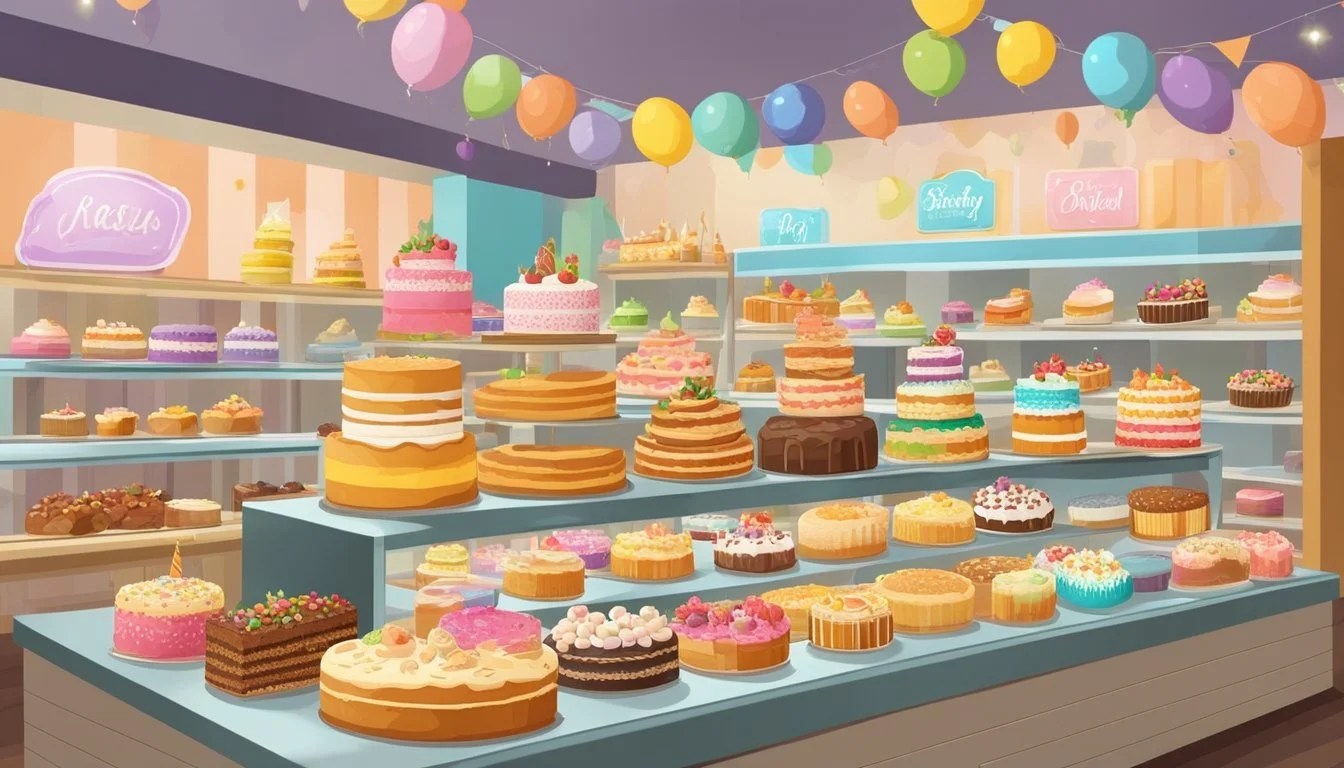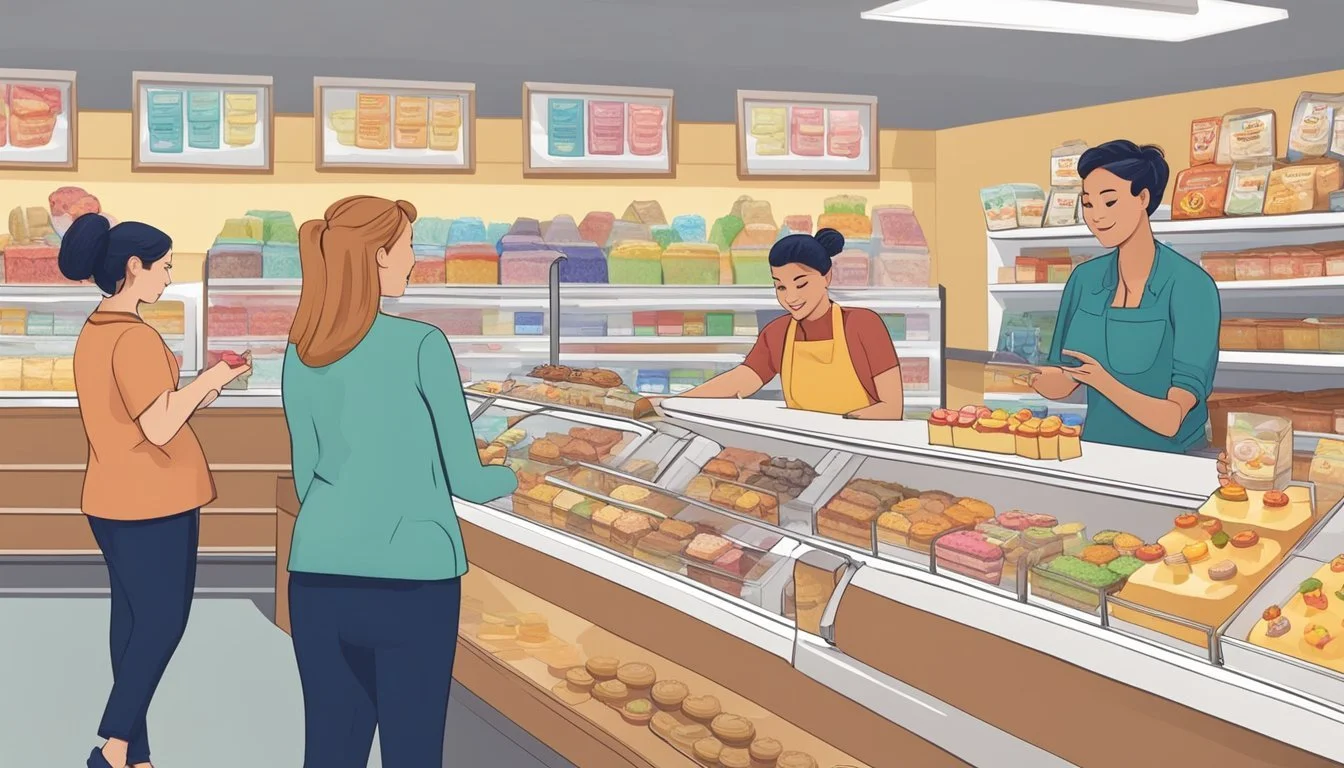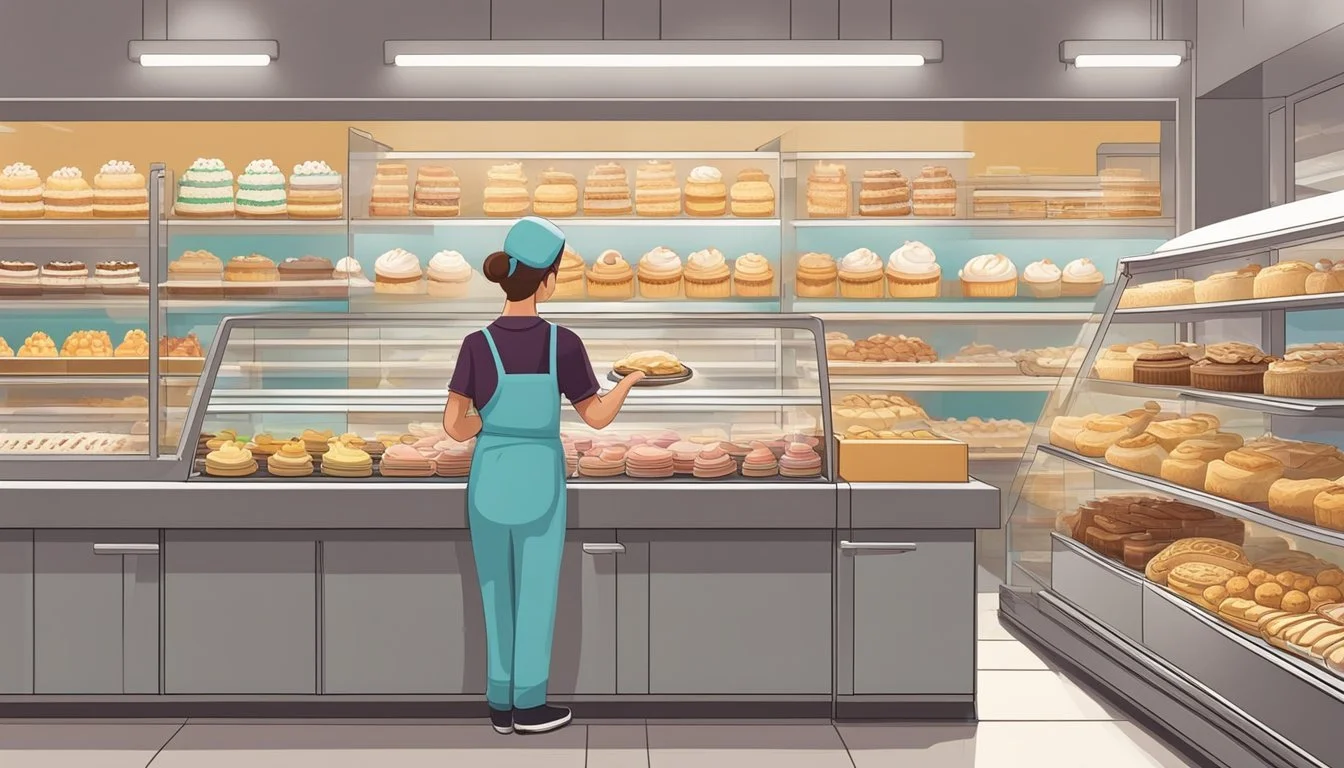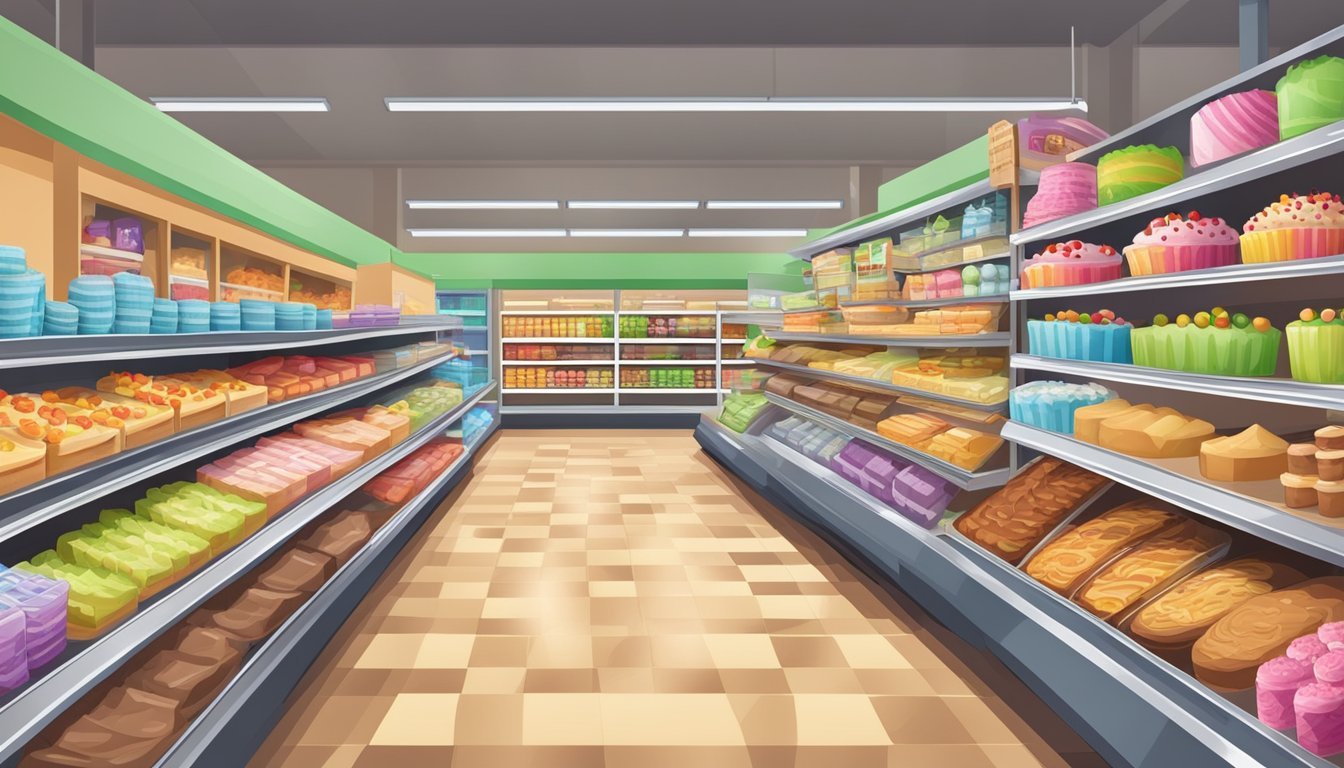Sweet Celebrations: Ranking the Best Grocery Stores for Birthday Cakes
Birthday cakes are a crucial element of any celebration, and finding the perfect one can make or break a party. Grocery stores have become popular destinations for purchasing these festive treats, offering convenience and affordability. Many chains now boast impressive bakery departments with skilled decorators and a wide variety of flavors and designs.
The best grocery stores for birthday cakes include H-E-B, Costco, and Stew Leonard's, each offering unique strengths in quality, value, and customization options. H-E-B, a Texas-based chain, provides an extensive selection of birthday cakes, including decorated cheesecakes for those seeking alternatives to traditional options. Costco stands out for its massive, budget-friendly sheet cakes that can feed large gatherings. Stew Leonard's, a regional favorite in the Northeast, prides itself on freshly baked goods made in full view of customers, ensuring transparency and quality.
When choosing a grocery store for a birthday cake, factors to consider include the size of the party, desired flavors, and any dietary restrictions. Some chains excel in specific areas, such as Sam's Club's fruit-topped cakes or Publix's renowned buttercream frosting. By exploring various options, shoppers can find the ideal birthday cake to suit their needs and make their celebration memorable.
Choosing the Right Grocery Store for Your Cake
Selecting the ideal grocery store for a birthday cake involves considering factors like quality, variety, customization options, and price. Different chains excel in various aspects of cake offerings.
Understanding Grocery Store Bakeries
Grocery store bakeries offer convenience and often competitive pricing for birthday cakes. Many chains have in-house bakers who create fresh cakes daily. Some stores, like Wegmans and Publix, are known for high-quality bakery departments.
Customization options vary between stores. Safeway, for example, allows customers to choose cake flavors, fillings, and frostings. Whole Foods offers unique flavor combinations and organic ingredients for health-conscious consumers.
Price points differ significantly. Costco provides large, affordable sheet cakes, while specialty stores like The Fresh Market may charge premium prices for artisanal creations.
Comparing Popular Grocery Chains
Walmart and Kroger offer budget-friendly options with a wide selection of designs. These stores are suitable for basic birthday cakes at lower price points.
H-E-B, a Texas-based chain, stands out for its variety of birthday cake options, including decorated cheesecakes. Their cakes are popular among locals for taste and value.
Trader Joe's provides unique, pre-made cakes with interesting flavors, though customization is limited. Wegmans is praised for its cake quality and design capabilities.
Publix is known for excellent customer service and consistently moist, flavorful cakes. Their Publix Greenwise line caters to those seeking natural ingredients.
Costco remains a top choice for large gatherings due to their sizeable, affordable sheet cakes that can serve up to 48 people.
Types of Cakes Available
Grocery stores offer a wide variety of cakes to suit different tastes, occasions, and dietary needs. From classic flavors to custom creations, shoppers can find options ranging from simple sheet cakes to elaborate tiered designs.
Classic Cake Flavors and Designs
Most grocery store bakeries stock popular cake flavors like chocolate, vanilla, and marble. Sheet cakes are common for larger gatherings, while round cakes work well for smaller celebrations. Chocolate cake remains a top seller, often paired with chocolate or vanilla frosting. Vanilla cakes provide a versatile base for various frostings and fillings.
Many stores offer carrot cake as a slightly healthier alternative. This spiced cake typically includes cream cheese frosting. Some bakeries enhance their carrot cakes with nuts or raisins for added texture.
For special occasions, tiered cakes or cakes with themed decorations are available. These often feature colorful frosting designs, edible images, or fondant decorations.
Specialty and Customizable Cakes
Grocery stores are expanding their cake offerings to include more unique flavors and designs. Cheesecakes have become popular options, available in various flavors like strawberry, turtle, or New York style.
Ice cream cakes combine cake layers with ice cream for a cool treat. These are especially popular for summer birthdays.
Many bakery departments now offer customizable cakes. Customers can choose their preferred cake flavor, frosting, and decorations. This allows for personalized messages, color schemes, and designs tailored to specific events or preferences.
Stores like Costco are known for their large, affordable sheet cakes that can feed many guests. These cakes often come in chocolate or vanilla flavors with simple but appealing decorations.
Dietary-Specific Options
To accommodate various dietary needs, many grocery stores now offer vegan and gluten-free cake options. These cakes use alternative ingredients to create treats suitable for those with specific dietary restrictions or preferences.
Vegan cakes often use plant-based milk, oils, and egg substitutes. They may be topped with dairy-free frostings made from ingredients like coconut cream or vegan butter alternatives.
Gluten-free cakes are typically made with rice flour, almond flour, or other gluten-free alternatives. These cakes cater to those with celiac disease or gluten sensitivities.
Some stores also offer reduced-sugar or sugar-free cake options for diabetic customers or those watching their sugar intake. These cakes may use sugar substitutes or natural sweeteners to achieve the desired taste.
Ingredients and Quality
Grocery store birthday cakes vary widely in their ingredient quality and sourcing. Some chains prioritize natural and organic components, while others focus on cost-effectiveness. Reading food labels carefully reveals important details about cake ingredients.
Natural and Organic Offerings
Many grocery stores now offer birthday cakes made with natural and organic ingredients. These cakes often use unbleached flour, cage-free eggs, and organic milk. Some bakeries avoid artificial preservatives and colors, opting for natural alternatives. Whole Foods Market is known for its strict ingredient standards, banning over 150 ingredients commonly found in other cakes. Trader Joe's also emphasizes clean labels, using real butter and cream in their frosting instead of hydrogenated oils.
Understanding Food Labels
Deciphering cake ingredient lists helps consumers make informed choices. "Natural" on a label doesn't guarantee healthier ingredients. Look for specific claims like "no artificial flavors" or "made with organic sugar." High-fructose corn syrup is a common sweetener in many grocery store cakes. Some chains list ingredients by weight, with the most prevalent listed first. Allergen information is crucial for those with dietary restrictions. Preservatives like potassium sorbate extend shelf life but may be avoided by health-conscious shoppers.
Pricing and Value
Birthday cake prices vary widely between grocery stores. Some offer budget-friendly options while others provide premium cakes at higher price points. Savvy shoppers can find great deals by comparing costs and looking for special offers.
Getting the Most Cake for Your Buck
Costco stands out for value, offering massive half sheet cakes that serve 48 people for under $20. This breaks down to less than $0.50 per serving. Walmart and Kroger also provide affordable options, with 1/4 sheet cakes often priced between $15-25.
For those seeking higher quality, Whole Foods and Wegmans offer artisanal cakes at $30-50 for a small round. While pricier, these often feature premium ingredients and unique designs.
Some stores like Safeway surprise customers with quality cakes at reasonable prices. A Bellevue, Washington location received praise for inexpensive cakes that impressed party guests.
Membership Deals and Discounts
Warehouse clubs like Costco and Sam's Club require memberships but reward members with significant savings on cakes. These stores often beat competitors' prices by 20-30%.
Many grocery chains offer loyalty programs with birthday discounts. Safeway's Just for U program and Kroger's Plus Card frequently provide $3-5 off cake orders for members.
Timing purchases can lead to deals. Bakery departments may discount cakes nearing their sell-by dates, offering savings of 25-50% for flexible shoppers.
Some stores run seasonal promotions, like buy-one-get-one offers during graduation season or summer holidays. These deals can effectively cut costs in half for those planning multiple celebrations.
Cake Customization and Ordering Process
Many grocery stores offer customizable birthday cakes with various designs, flavors, and sizes. The process typically involves selecting cake options and placing an order in advance.
Designing Your Perfect Birthday Cake
Grocery store bakeries often provide catalogs with pre-designed cakes and customization options. Customers can choose from different cake sizes, shapes, flavors, and frostings. Popular choices include chocolate, vanilla, and marble cakes with buttercream or whipped cream frosting.
Some stores offer edible image printing, allowing customers to add photos or custom designs. Decorative elements like flowers, figurines, and themed toppers are usually available. Many bakeries can accommodate dietary restrictions, offering gluten-free, dairy-free, or vegan options.
How to Place Custom Orders
Custom cake orders typically require 24-48 hours' notice, though more complex designs may need additional time. Customers can place orders in-store at the bakery counter or through the store's website or app.
When ordering, specify cake size, flavor, frosting, filling, and desired decorations. Provide any text for personalized messages. Some stores may require a deposit or full payment when placing the order.
It's advisable to confirm pickup details and ask about storage recommendations. Many bakeries offer plastic containers for leftover cake preservation upon request.
Dessert Alternatives and Add-Ons
Many grocery stores offer a variety of dessert options beyond traditional birthday cakes. These alternatives cater to different tastes and dietary needs, while complementary items can enhance the celebration.
Beyond Cakes: Exploring Other Options
Grocery stores often stock an array of dessert alternatives for birthdays. Cookies come in various flavors and sizes, from classic chocolate chip to elaborate decorated sugar cookies. Muffins provide a portable option, perfect for individual servings. Pies and tarts offer a fruity twist, with popular choices like apple, cherry, or lemon meringue. Some stores create dessert platters featuring a mix of baked goods, allowing guests to sample different treats.
For those with dietary restrictions, many grocery chains now offer gluten-free, vegan, or sugar-free options. These might include specially made cupcakes, brownies, or fruit-based desserts. Custom orders are often available for larger quantities or specific dietary needs.
Complementary Items for Your Celebration
Grocery stores provide numerous add-ons to enhance birthday desserts. Ice cream pairs well with cakes and pies, with many stores offering both name-brand and house-made options. Whipped cream, either in cans or as a stabilized topping, adds a light, creamy touch to various desserts.
Fruit platters serve as a refreshing complement to sweeter treats. Many stores offer pre-made fruit arrangements or can create custom platters on request. Chocolate-covered strawberries or other dipped fruits provide an elegant option for more upscale celebrations.
Candles, sparklers, and decorative toppers are often found in the baking aisle. Some stores even stock themed party supplies to coordinate with the chosen dessert. For a finishing touch, flavored syrups or sauces can be drizzled over desserts for added taste and visual appeal.
Preparation and Storage
Proper preparation and storage are crucial for maintaining the quality of grocery store cakes. These practices ensure the cake stays fresh for your event and allow you to enjoy any leftovers.
Ensuring Freshness for Your Event
Pick up the cake as close to the event as possible. Many grocery stores bake cakes fresh daily. If you must get it in advance, store it in a cool, dry place away from direct sunlight. Avoid refrigerating unfrosted cakes, as this can dry them out.
For frosted cakes, use a cake carrier or cover with plastic wrap, ensuring it doesn't touch the frosting. If the cake has whipped cream or custard fillings, refrigerate immediately. Remove the cake from the fridge 30 minutes before serving to allow it to reach room temperature for optimal flavor and texture.
Tips for Storing Leftover Cake
Cut leftover cake into individual slices for easier storage and serving. Place wax paper between slices to prevent sticking. Store in an airtight container at room temperature for 3-4 days.
For longer storage, freeze cake slices. Wrap each piece in plastic wrap, then aluminum foil. Label with the date and freeze for up to 3 months. Thaw frozen cake in the refrigerator overnight.
Cakes with cream cheese frosting or fruit fillings should be refrigerated. Use within 3-5 days for best quality. Bring to room temperature before serving to enhance flavor.
Taste and Aesthetics
Taste and visual appeal are crucial factors when selecting a grocery store birthday cake. A delicious cake with eye-catching decorations can elevate any celebration.
Conducting a Taste Test
Sample cakes from different grocery stores to compare flavors and textures. Choose popular options like chocolate, vanilla, and red velvet. Pay attention to the cake's moistness and overall taste profile.
Consider bringing friends or family members to provide diverse opinions. Note which cakes have a balanced sweetness and authentic flavors. Some stores offer free samples, making it easier to try multiple varieties.
Keep track of your impressions using a simple rating system. This helps identify standout cakes and eliminates subpar options quickly.
Evaluating Cake Texture and Frosting Flavor
A great cake should have a soft, moist crumb that isn't too dense or dry. Assess the texture by gently pressing the cake with a fork. It should spring back slightly when touched.
Frosting plays a crucial role in the overall taste experience. Look for smooth, creamy buttercream or rich chocolate ganache. Avoid frostings that are too sweet or grainy.
Some stores offer unique options like cheesecake mousse fillings or chocolate mousse layers. These can add depth and complexity to the flavor profile.
Pay attention to the cake-to-frosting ratio. A well-balanced cake has enough frosting to complement the cake without overpowering it.
Presentation and Cake Layers
Visual appeal is essential for birthday cakes. Examine the overall design and decoration quality. Look for clean lines, vibrant colors, and professional-looking finishes.
Check the evenness of cake layers. They should be uniform in thickness and well-stacked. Uneven layers can affect both appearance and taste.
Consider the variety of design options available. Some stores offer customizable cakes with different themes, while others have pre-made designs.
Assess the stability of decorations. Fondant or buttercream decorations should be firmly attached and able to withstand transport without sliding or melting.
Health and Dietary Considerations
Many grocery stores now offer cake options to accommodate various health needs and preferences. These choices allow more people to enjoy birthday treats while adhering to their dietary requirements.
Choosing the Right Cake for Dietary Restrictions
Vegan cakes are increasingly available at major grocery chains. These contain no animal products, relying on plant-based ingredients for moisture and binding. Gluten-free options cater to those with celiac disease or gluten sensitivity, using alternative flours like rice or almond.
Some stores offer sugar-free cakes for diabetics or those watching their sugar intake. These may use sugar substitutes or fruit-based sweeteners. Organic cakes appeal to health-conscious consumers, featuring ingredients grown without synthetic pesticides or fertilizers.
When ordering, always specify dietary needs clearly to ensure the cake meets requirements.
Confronting Concerns About Artificial Ingredients
Many shoppers worry about artificial additives in store-bought cakes. Some chains now offer "clean label" options with simpler ingredient lists. These cakes often avoid artificial colors, flavors, and preservatives.
Natural food dyes derived from fruits and vegetables are becoming more common. Beet juice can create red hues, while turmeric provides yellow tones.
To address concerns, ask bakery staff about ingredient sourcing and preparation methods. Some stores can provide detailed ingredient lists or allergen information upon request.
Reading labels carefully helps identify cakes with fewer artificial additives if that's a priority.










